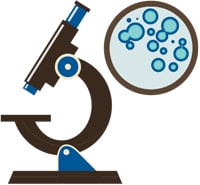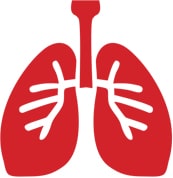Health Benefits of Apples

40% Lower Cholesterol
Middle-aged adults who consumed one apple a day for four weeks lowered their levels of LDL cholesterol by 40 percent.

Cancer Killer or Inhibitor
A group of phytochemicals that are more abundant in the peel and appear to kill or inhibit the growth of at least three different types of human cancer cells: colon, breast and liver.

Gastro-Intestinal Health
A Michigan apple is a tastier treat than a fiber pill and eating high-fiber apples regularly can help keep you regular!

Weight Loss
A 2003 Brazilian study reports that women who ate apples as part of a calorie-reduced diet program lost more weight than those dieters who didn’t eat apples.

Nature’s Toothbrush
Their rough, fibrous texture and natural tannins, chased with a rinse of water, make them ideal for cleaning and brightening teeth — and they are a healthy, sweet alternative to sugary snacks!

Better Brains
Researchers from Cornell University highlighted a particular apple flavonoid, quercetin, as a principle compound responsible for protecting brain neurons against the sort of oxidative damage that leads to memory loss.

Breathe Easier
A study from London’s King’s College and the University of Southampton reports that people who ate at least two apples per week had a 22-32 percent lower risk of developing asthma than people who ate fewer apples.
Reduce Risk of Heart Disease and Stroke
Diets low in saturated fat and cholesterol and rich in fruits that contain fiber, particularly soluble fiber, may lower blood cholesterol levels and reduce the risk of heart disease. Development of heart disease depends on many factors. Apples are a naturally fat-free, saturated fat-free, and cholesterol-free food, and are an excellent source of fiber—both soluble (including pectin) and insoluble types.
In 2012, a study funded by USApple at The Ohio State University showed a link between daily consumption of apples and reduced levels of low-density lipoprotein (“bad” cholesterol). The study showed middle-aged adults who consumed one apple a day for four weeks lowered their levels of LDL cholesterol by 40 percent.
A 2007 study has identified a possible link between a common component of apples and heart health in postmenopausal women. The study results indicate that increased consumption of apples may contribute to a decrease in mortality from both coronary heart disease and cardiovascular disease.
Reduce Cancer Risk
Diets low in total fat and rich in fiber-containing fruits and other plant foods may reduce the risk of some types of cancer. Development of cancer depends on many factors. Apples are an excellent source of fiber, and are naturally fat-free.
Experts believe that “phytochemicals” (aka “plant chemicals” or “plant nutrients”) such as flavonoids, in many fruits, including apples, may fight cancer. Certain cancers in particular have been more extensively studied:
Breast Cancer: A series of studies at Cornell University have evaluated the direct effects of apples on breast cancer prevention in animals. The more apples consumed, the greater the reduction in incidence or number of tumors among test animals. The apple consumption tested was equivalent to one to six apples a day for 24 weeks.
Pancreatic Cancer: Quercetin, a flavonoid found naturally in apples, has been identified as one of the most beneficial flavonols in preventing and reducing the risk of pancreatic cancer. Although the overall risk was reduced among the study participants, smokers who consumed foods rich in flavonols had a significantly greater risk reduction.
Colon and Liver Cancer: A research team at Cornell University identified a group of phytochemicals that are more abundant in the peel and appear to kill or inhibit the growth of at least three different types of human cancer cells: colon, breast and liver.
Bowel Cancer: Eating just one apple a day could slash the risk of colorectal cancer by more than one third. Researchers in Poland surveyed 592 people with colorectal cancer and 700 cancer-free individuals about their diet and lifestyle. Cancer-free individuals tended to eat more apples than those with cancer and the more apples per day that an individual ate the less likely they were to develop colorectal cancer. They also found that the anti-cancer effect was seen even when an individual had a low total consumption of fruits and vegetables but consumed at least an apple a day. The observed protective effect may result from apples’ rich content of flavonoids and other polyphenols, which can inhibit cancer onset and cell proliferation. In addition, apples are a good source of fiber and a high-fiber diet is known as a risk reducer for colorectal cancer.
Reduce High Blood Pressure Risk
Diets low in sodium may reduce the risk of high blood pressure, a disease associated with many factors. Development of hypertension or high blood pressure depends on many factors. Apples are a naturally sodium-free food.
The Mayo Clinic calls high blood pressure—aka hypertension—the silent killer because it stealthily attacks vital organs, including the heart. Preventing hypertension to begin with, or controlling it as much as possible, is vital to your better health. So here’s one more reason to enjoy apples daily as part of a low-fat, low-sodium diet.
Aid Weight Loss
Eating more high-fiber foods like apples may help you lose weight. A 2003 Brazilian study reports that women who ate apples as part of a calorie-reduced diet program lost more weight than those dieters who didn’t eat apples. It might be that apples’ fiber fills you up faster, so you eat less and feel fuller for longer. And soluble fiber slows the body’s release of glucose, preventing sudden drops in blood sugar that trigger hunger and can set off food cravings. All that, and a tennis ball-sized apple contains only about 80 calories!
Gastrointestinal Health
Eating high-fiber apples regularly can help keep you regular. Apples’ soluble fiber absorbs water to soften stools, while their insoluble fiber provides bulk to ease elimination. And a Michigan apple is a tastier treat than a fiber pill!
In addition, researchers from the University of Denmark have discovered that apples and apple products could give the health of your intestines as well as your immune system a boost—by increasing the numbers of good intestinal bacteria. When scientists fed rats a diet of apples in all its forms including juice, applesauce, and the whole fruit, the rats developed larger numbers of good intestinal bacteria. Researchers believe it is due to the pectin the apple contains. Pectin is a fiber-like substance found in the cell walls of plants, and is often packaged and used as a gelling agent for people who make their own homemade jams and jellies. Apples are a natural source of this fiber-like material. The friendly bacteria in the intestines like to feed on apple pectin which allows them to replicate and thrive while doing their good disease-fighting deeds in the intestines.
Brighten Smile
Crunchy, juicy apples act like “nature’s toothbrush,” keeping teeth healthy and scrubbing away stains over time. Their rough, fibrous texture and natural tannins, chased with a rinse of water, make them ideal for cleaning and brightening teeth. In addition, the Academy of General Dentistry suggests that choosing healthy snacks like apples, in place of sugary snacks, can help prevent cavities in children.
Maintain Energy
Apples are a smart choice for anyone who wants to maintain blood sugar levels that are already within normal limits. High-fiber foods like apples act like an energy time-release machine. While refined sugars get released into our bodies immediately, soluble fiber such as in apples acts like a glucose net—causing apples’ natural sugars to be released more slowly and evenly, preventing sudden peaks or valleys in blood sugar. (Individuals with diabetes should consult their health professionals for specific guidance.)
Immune System
Soluble fiber, like pectin from apples, may reduce the inflammation associated with obesity-related diseases and strengthen the immune system, according to a study from the University of Illinois. Lab animals fed a low-fat diet with either soluble or insoluble fiber showed distinctly different responses when their immune system was challenged, with the soluble-fiber-fed animals displaying less sickness and a faster recovery rate than the other animals.
Food for thought
Apples may provide food for thought—literally. There is growing evidence that antioxidants, such as those found in apples, may protect brain cells. Oxidative damage to brain cells may reduce brain function over time, and increase the risk of developing neurodegenerative diseases.
A growing body of evidence from the University of Massachusetts–Lowell suggests that eating apples and drinking apple juice can be beneficial when it comes to improving brain health and diminishing symptoms of Alzheimer’s disease. In conjunction with a balanced diet, apple and apple juice consumption may protect against oxidative brain damage that can lead to memory loss. The brain health benefits were found when animals consumed the equivalent of 2-3 cups of apple juice or 2-4 whole apples per day. A clinical trial showed that drinking apple juice significantly improved mood and behavior among a group of patients diagnosed with moderate-to-severe Alzheimer’s disease.
Researchers from Cornell University also found in their in vitro study that apple nutrients protected brain neurons against oxidative damage. Such damage can contribute to neurodegenerative diseases such as Alzheimer’s and Parkinson’s. The study highlighted a particular apple flavonoid, quercetin, as a principle compound responsible for the protective effect.
Lung Health
Research from the UK reports that children of mothers who eat apples during pregnancy are much less likely to exhibit symptoms of asthma, including wheezing, at age 5. Among a variety of foods consumed and recorded by the pregnant women, apples were the only food found to have a positive association with a reduced risk of asthma.
Also, Australian researchers report that study participants who ate apples and pears had the lowest risk of asthma.
A study from London’s King’s College and the University of Southampton reports that people who ate at least two apples per week had a 22-32 percent lower risk of developing asthma than people who ate fewer apples.
The Dietary Guidelines for Americans recommends that adults consume two and a half to more than six cups of fruits and vegetables a day for better health, depending on calorie needs. Please contact your health care provider should you have any questions or concerns about your diet and health. This information is not intended to be a substitute for professional advice.
Sources:
- Journal of Functional Foods, Volume 5, Issue 1, January 2013, Pages 493–497
- American Journal of Clinical Nutrition, 2007, 85 (3): 895-909
- Journal of Agric. Food Chem., 2009, 53: 2341-2343
- American Journal of Epidemiology, 2007, 8: 924-931
- Journal of Agricultural and Food Chemistry, 2007, 55(11): 4366 – 4370
- European Journal of Cancer Prevention, 2010, 19(1): 42-47
- BMC Microbiology 2010, 10:13
- M.C. de Oliveira et al, Nutrition (Elsevier), 2003, vol. 19, no. 3: pg 253-256
- Brain, Behavior, and Immunity, 2010, in press/available online
- Am J Alzheimer’s Dis Other Demen, 2010, 25: 367-371
- AgroFOOD Industry High-Tech, 2009, 20; 6: 32-34
- Journal of Alzheimer’s Disease, 2009, 16:1
- Journal of Alzheimer’s Disease, 2005, 8: 283-287
- Journal on Nutrition Health and Aging, 2004, 8: 92-97
- Journal of Food Science, 2004, 69: S357-S360
- Thorax, 2007, 62:745-746
- American Journal of Clinical Nutrition, 2003; 78: 414-21
- Am. J. Respir. Crit. Care Med, 2001, 164: 1823-1828
